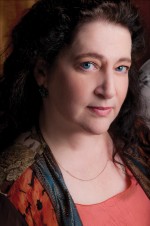Column Name
Title
After graduating from Juilliard, Laurie Smukler (BM '77, violin), who was born and raised in Cleveland, traveled extensively as the original first violinist of the Mendelssohn String Quartet. She then accepted her first teaching position, at Purchase College, SUNY, where she taught for 18 years, 10 of them as head of the string area. She joined the Juilliard faculty in 2013, she's also taught at Mannes, and she still teaches at the Manhattan School of Music and Bard College Conservatory. Her husband of 38 years, Ira Weller (BM '76, MM '77, viola), is a member of the Metropolitan Opera Orchestra. Their children are AnnaLinden Weller, a Byzantine historian and science fiction writer currently doing a post-doc at the University of Uppsala, Sweden; and Julian Weller, who's the production manager for the Afro-Latin Jazz Orchestra.
Body
Is there anything you'd like us to know about your recital on March 17?
I'm very excited to present these remarkable pieces (Bartók's Rhapsody No. 1 and Sonatas Nos. 1 and 2) in one program. I'm playing with my friend and Juilliard colleague the wonderful pianist Robert McDonald. We started playing together when we were in our 20s and have had opportunities to play together every so often since then. It's a joy to be working and playing together again.
When did you first know you wanted to be a musician?
My parents had season tickets to the Cleveland Orchestra, which they started taking me to—especially when there was a soloist— when I was 5. George Szell was the conductor, and the orchestra was superlative. I started taking theory and Dalcroze Eurythmics at the Cleveland Institute of Music at the age of 3, and by 6, I knew that I wanted to be a violinist. I had been inspired by the violinists I had seen and heard performing with the Cleveland Orchestra at Severance Hall. Among them were David Oistrach, Erica Morini, and Isaac Stern.
How has Juilliard changed since your day?
It has a dormitory! The Rose Building did not exist when I was in school. In the curriculum, there seems to be a greater emphasis on learning how to interact with the public. I also get the sense that the training is more multifaceted and practical for success in the outside professional world.
What are three ways that it's the same?
Great students, a significant amount of pressure felt by those students, and great faculty.
What advice you wish you'd had when you studied here?
Learn what you personally care about and realize that you simply cannot make everyone love your playing. It is impossible. But staying true to the kind of musicmaking you believe in, and working hard to be able to play in a way that supports that, will draw to you opportunities for success and colleagues you can share it with. Also realize that the "stars" during your time at Juilliard will not necessarily be the only artists to be very successful after Juilliard.
What are your nonmusic hobbies?
Reading, theater, walking our golden retriever, Blaze.
If your students could only remember one thing from your teaching, what would it be?
That they can figure just about any problem out— they're not stuck. The longer I teach, the more tools I have to share with my students—I want them to have those tools, and many more they can discover by learning how to look for them.
What are you reading?
Heaven Has No Favorites by Erich Maria Remarque. Just before this novel, I read the same author's Arch of Triumph. Very vivid, emotional writing.
Anything else?
Juilliard is a remarkable place to work, and I feel very privileged to be part of the community. I love my wonderful students, my extraordinary faculty colleagues, and our superb and supportive administration.





